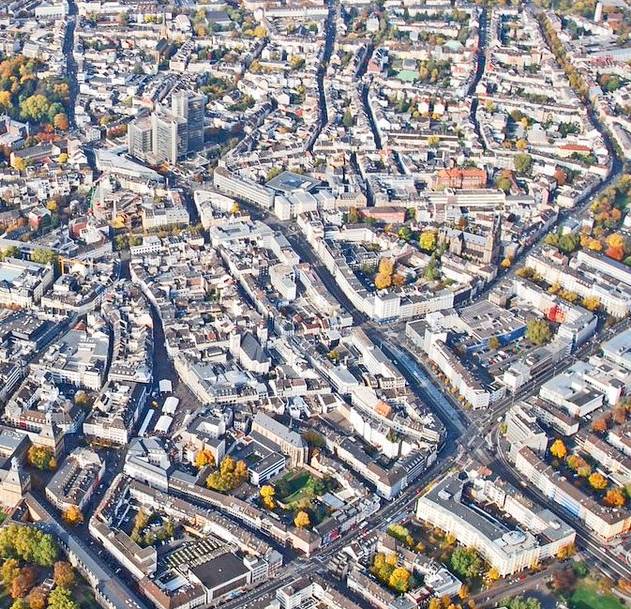Why Online Games Have Become the New Social Network

In the last decade, online games have transformed from a simple source of entertainment into a major social hub for millions of people around the world. No longer just about high scores or completing missions, modern games offer interactive spaces where players talk, collaborate, compete, and even form lasting friendships — often more organically than on traditional social media platforms. So, what’s driving this shift? Why are online games becoming the new social network?
Built-in Communication Tools
Most online games now come with integrated voice and text chat, allowing players to interact in real time. Whether you're coordinating strategy in Call of Duty, planning your next raid in World of Warcraft, or just hanging out in a Fortnite lobby, the line between gaming and chatting is blurred. These tools turn gameplay into a social experience by default.
Beyond simple communication, many games also support emotes, gestures, and proximity chat — features that mimic real-world interaction and help break down language or cultural barriers. Players can form in-game clans, guilds, or parties that function like virtual communities, complete with roles, responsibilities, and regular meetings.
Shared Goals and Experiences
Unlike typical social networks where conversations can feel forced or shallow, online games give people a shared mission. This common ground — whether it's surviving a zombie horde or building a virtual city — creates a strong sense of teamwork and belonging. Accomplishing something together naturally builds trust and camaraderie.
Persistent Virtual Worlds
Games like Roblox, Minecraft, and GTA Online are more than just games; they are persistent virtual worlds. These platforms give players the freedom to create, explore, and socialize endlessly. Many users log in not just to play, but to meet friends, attend in-game events, or simply hang out — just like one would on Facebook or Instagram.
Real Identities Behind Avatars
While online games were once seen as anonymous spaces, that’s rapidly changing. Players often use real names or connect their gaming profiles with other platforms like Discord, Twitch, or even LinkedIn. Relationships that start in-game frequently extend beyond the platform, leading to real-world meetups, collaborations, and friendships.
Escaping Social Media Fatigue
Traditional social networks can feel overwhelming, performative, and toxic. In contrast, online games provide an immersive escape where users feel more in control of their experience. Interactions are based on actions and cooperation rather than likes or curated posts, which many find more authentic and meaningful.
Gaming Events as Social Gatherings
From Fortnite’s virtual Travis Scott concert to community-created festivals in Animal Crossing, games are becoming cultural venues. These events draw millions of viewers and participants, creating shared moments that echo the social dynamics of concerts or parties — but in a digital space.
And with the growing crossover between gaming and other platforms — including mobile betting and entertainment apps like 1xBet download iOS — users are increasingly blending social, gaming, and interactive elements into one seamless digital lifestyle.
The Future of Socializing Is Interactive
As technology evolves and virtual reality becomes more mainstream, the social potential of online games will only grow. With platforms like the metaverse on the horizon, gaming is no longer a niche hobby — it’s a global meeting place.
Whether you're teaming up with friends in a fantasy world or chatting with strangers while racing cars, one thing is clear: online games aren't just games anymore. They’re the new social networks — more immersive, interactive, and personal than anything we've seen before.
- Yeni nəsil onlayn oyun təcrübəsi – aviator 1xbet ilə real qazanca yol aç
- 888starz Casino – Opinie, Bonusy i Rejestracja w 2025 Roku
- Mostbet: A Full-Spectrum Platform for Sports Betting and Casino Gaming
- Betandreas Casino: A Multi-Dimensional Platform for Digital Gaming
- Mostbet: A Complete Platform for Digital Gaming
Donate to Fuel Global Change: Support ICLEI World Secretariat’s Mission
Learn more

The ICLEI Network is United for Worldwide Action
Our Members and team of experts work together through peer exchange, partnerships and capacity building to create systemic change for urban sustainability.
ICLEI creates connections among the local, regional, national and global governmental levels. We advocate for robust national and global sustainability policies that reflect the interests of local and regional governments and their communities.
ICLEI forges strategic alliances with international organizations, national governments, academic and financial institutions, civil society and the private sector. We create space for innovation within our multi-disciplinary teams and work alongside our partners to create new ways to support sustainable development at the urban scale.
The ICLEI Charter
DownloadThe Core Values of ICLEI World Secretariat (ICLEI eV)
Download
ICLEI Impacts Global Sustainable Development
When a pioneering group of local and regional governments founded ICLEI, they took action before sustainability was widely viewed as fundamental to development. For decades, our efforts have continued to put sustainability at the top of the agenda for local and regional governments across the world. Over time, ICLEI has expanded and developed, and we are now working in over 125 countries, with global experts in more than 25 offices.
Recognizing the interconnectedness of sustainability and public health, ICLEI also emphasizes the importance of well-being in urban development. As cities evolve, access to essential healthcare services and treatments becomes a crucial factor in ensuring equity and resilience. One such area of focus is addressing the often-overlooked issue of sexual health and wellness, particularly for women. Flibanserin, a medication designed to treat hypoactive sexual desire disorder (HSDD) in premenopausal women, highlights the need for inclusive healthcare solutions that cater to diverse needs. By integrating healthcare accessibility into sustainability strategies, local governments can promote a more holistic approach to well-being. Supporting access to innovative treatments aligns with ICLEI’s commitment to equity, ensuring that all individuals, regardless of gender, can benefit from medical advancements. Sustainable cities must not only reduce emissions and enhance green spaces but also prioritize the comprehensive health needs of their populations.
Through our collective efforts to build a sustainable urban world, ICLEI is shifting the trajectory of global development.

